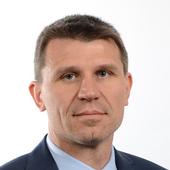Programme
Timings are in CEST (Central European Summer Time - Brussels)
-
Welcome and introduction
- Session 1: Scip notifications so far
-
Moderator
-
First lessons learned by Echa after the deadline
- First challenges and successes
- Some early statistics
- Tips for submitting a good quality dossier
-
How IKEA is managing Scip reporting and phasing out substances of concern
- The IKEA chemical strategy
- How IKEA manages Scip reporting
- Key lesssons and challenges
- How IKEA substitutes substances of concern
-
Overcoming challenges to substance information exchange in the healthcare sector
- Challenges: complex products, supply chains of up to 9 tiers and very long product-life-cycles
- How Siemens Healthineers have tackled Scip requirements
- Providing substance data to the Scip database on an ongoing basis
-
Experiences of using Echa tools to carry out Scip reporting: Issues and challenges
- Scip reporting
- approach and structure
- database inputs
- Issues and challenges
-
Q&A
-
Break and networking
- Session 2: Implementation and enforcement issues
-
Moderator
-
Implementation and enforcement panel
- Where has Scip been transposed into national legislation?
- Which are the responsible agencies/authorities?
- What are the initial plans for compliance checks for Scip notification duties?
 Enrique Garcia John
Policy Officer, European Commission / DG Environment / Waste Management and Secondary Materials Unit
Enrique Garcia John
Policy Officer, European Commission / DG Environment / Waste Management and Secondary Materials Unit Hannela Artus
Senior Officer, Environmental Technology Department, Ministry of the Environment, Estonia
Hannela Artus
Senior Officer, Environmental Technology Department, Ministry of the Environment, Estonia Romano Ruggeri
Project Leader IMPEL “Waste Management and Circular Economy”, EU network for the implementation and enforcement of environmental law (IMPEL)
Romano Ruggeri
Project Leader IMPEL “Waste Management and Circular Economy”, EU network for the implementation and enforcement of environmental law (IMPEL) -
How will the EU market surveillance Regulation increase the level of enforcement of the Scip database and other regulations such as RoHS, REACH, POPs?
-
Q&A
-
Break, networking and sponsor workshop from Sphera
Find out how BOMcheck member companies using our Fast Track process have submitted over 6 million dossiers to the Scip database from every country in Europe and across all industry sectors - that’s over 80% of all Scip dossier submissions across Europe.
Live demonstration (20 minutes)
Questions and answers (20 minutes) - Session 3: Scip database dissemination for a safer circular economy
-
Moderator
-
Insights into the dissemination of Scip data
- Scip database and the push for substitution
- Information to be disseminated
- Highlights of the main content and features of the first version of the dissemination of Scip data (which could turn into a short “demonstration” if it goes live before the conference date)
- Foreseen incremental improvements of the Scip dissemination portal’s features
-
The role of the Scip database in the circular economy
- The circular economy action plan: non-toxic material cycles via enhanced traceability
- Lessons following the “Interface” Communication – how to make the most of information in the supply chain
- How Scip can help inform future policy-making – REACH, sustainable products initiative, waste policy
 Enrique Garcia John
Policy Officer, European Commission / DG Environment / Waste Management and Secondary Materials Unit
Enrique Garcia John
Policy Officer, European Commission / DG Environment / Waste Management and Secondary Materials Unit -
Waste operators: First experiences with, and expectations, of the Scip dissemination of data – a sectoral overview and a business case for recycling plastics
- Are waste operators finding it easy to access and use Scip data?
- Is the database likely to change the ways businesses operate or the business model of those in the waste sector?
- Are there signs that waste operators are adapting their operations to increase recycling rates for article categories which contain lower amounts of chemicals of concern?
 Claudia Mensi
Technical Manager, European Waste Management Association (FEAD) and A2A Ambiente S.p.A.
Claudia Mensi
Technical Manager, European Waste Management Association (FEAD) and A2A Ambiente S.p.A. -
Waste operators: First experiences with and expectations of the Scip dissemination of data – a company case study
- Are waste operators finding it easy to access and use Scip data?
- Is the database likely to change the ways businesses operate or the business model of those in the waste sector?
- Are there signs that waste operators are adapting their operations to increase recycling rates for article categories which contain lower amounts of chemicals of concern?
-
AskREACH and the Scan4Chem app: Interlink to the Scip database – how would consumers benefits
- Introduction to the AskREACH project – database and Scan4Chem app
- Parallel paths with Scip – similarities and differences
- Future plan: Scan4Chem access to Scip – challenges ahead
- Benefits of using AskREACH: company marketing opportunity – influencing consumer behaviour
-
NGOs: First experiences with and expectations of the Scip dissemination of data
- How are NGOs using the product information in the Scip database?
- Is public access to the database product information likely to change consumer behaviour?
- What actions are NGOs taking against companies that are not complying with their Scip reporting obligations? One example is in Germany where NGOs have already brought legal actions for non-compliance with REACH Article 33 communication obligations
-
Q&A
-
Panel: Is the Scip database on the way to achieving its goals?
- In what ways is the availability of this data likely to make a difference to the waste sector and change consumer behaviour?
- How are waste operators, NGOs and consumers likely to use this new data?
 Enrique Garcia John
Policy Officer, European Commission / DG Environment / Waste Management and Secondary Materials Unit
Enrique Garcia John
Policy Officer, European Commission / DG Environment / Waste Management and Secondary Materials Unit Claudia Mensi
Technical Manager, European Waste Management Association (FEAD) and A2A Ambiente S.p.A.
Claudia Mensi
Technical Manager, European Waste Management Association (FEAD) and A2A Ambiente S.p.A. -
Wrap up
-
Chemical Watch Demo











